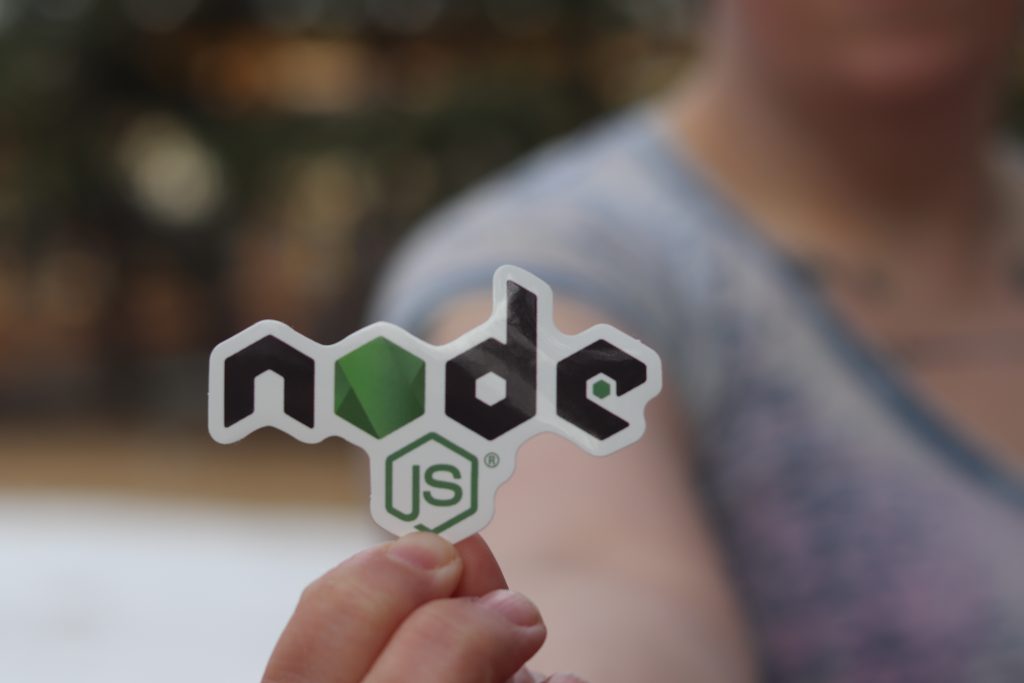Node.js is a popular JavaScript runtime environment that has gained widespread adoption among web developers. It is known for its ability to handle large amounts of data and to build scalable, high-performance applications. WordPress, on the other hand, is a widely used content management system that powers millions of websites worldwide. It is built on PHP and is known for its ease of use and flexibility.
Many developers wonder whether they can use Node.js with WordPress, and the answer is yes. While WordPress is built on PHP, it is possible to integrate Node.js into a WordPress site to add additional functionality or to improve performance. For example, developers can use Node.js to build real-time chat applications, to handle server-side rendering, or to build custom APIs. By integrating Node.js into a WordPress site, developers can take advantage of the strengths of both technologies to build powerful and flexible web applications.
However, it is important to note that integrating Node.js into a WordPress site requires some technical expertise. Developers need to have a good understanding of both technologies and be able to configure their environment accordingly. They also need to be aware of the potential security risks involved and take appropriate measures to ensure the security of their site. With the right skills and knowledge, however, developers can create powerful, high-performance web applications that take advantage of the strengths of both Node.js and WordPress.
Using Node.js with WordPress
What is Node.js?
Node.js is an open-source, cross-platform JavaScript runtime environment that allows developers to execute JavaScript code outside of a web browser. It is built on top of Google’s V8 JavaScript engine and provides an event-driven, non-blocking I/O model that makes it lightweight and efficient.
What is WordPress?
WordPress is a free and open-source content management system (CMS) that powers over 40% of the web. It was first released in 2003 and has since grown to become the most popular CMS in the world. It is built using PHP and MySQL and provides users with a simple and intuitive interface for creating and managing websites.
How can Node.js be used with WordPress?
Node.js can be used with WordPress in a number of ways. One of the most common ways is to use Node.js as a backend server to handle real-time communication and data processing. This can be done by creating a REST API using Node.js that interacts with the WordPress database and provides data to the frontend.
Another way to use Node.js with WordPress is to use it as a build tool for frontend assets. This can be done by using tools like Gulp or Grunt to compile, minify, and optimize CSS, JavaScript, and other assets used by WordPress.
Node.js can also be used to create custom WordPress plugins and themes. This can be done by using the WordPress REST API to interact with the WordPress database and provide custom functionality to the frontend.
Overall, using Node.js with WordPress can provide developers with a powerful and flexible platform for building modern, dynamic websites. By leveraging the strengths of both platforms, developers can create fast, scalable, and feature-rich applications that meet the needs of their users.
Setting Up Node.js with WordPress
Installing Node.js
Before you can use Node.js with WordPress, you must first install Node.js on your computer. Node.js is a runtime environment for JavaScript outside of a browser. You can download Node.js from the official website and install it on your computer. Once installed, you can run JavaScript code on the command-line.
Configuring Node.js with WordPress
To use Node.js with WordPress, you need to configure Node.js to work with WordPress. One way to do this is to use the WordPress REST API, which allows you to access WordPress data and functionality through a set of RESTful endpoints. You can use Node.js to make requests to these endpoints and retrieve data from WordPress.
Another way to configure Node.js with WordPress is to use the WP-API Node.js library, which provides an easy-to-use interface for working with the WordPress REST API in Node.js. This library makes it easy to make requests to the WordPress REST API and retrieve data from WordPress.
Using Node.js with WordPress Plugins
You can also use Node.js with WordPress plugins to add custom functionality to your WordPress site. For example, you can use Node.js to create a custom plugin that interacts with the WordPress REST API to retrieve data from WordPress and display it on your site. You can also use Node.js to create a custom plugin that adds new functionality to WordPress, such as a custom post type or a custom taxonomy.
In conclusion, Node.js can be a powerful tool for working with WordPress. By installing Node.js, configuring it to work with WordPress, and using it with WordPress plugins, you can add custom functionality to your WordPress site and create a more powerful and dynamic web application.
Node.js and WordPress REST API
What is REST API?
REST API is a standard protocol that allows communication between different web applications. In the case of WordPress, it enables developers to access and manipulate WordPress data using HTTP requests. This means that developers can create custom applications that interact with WordPress data without having to use the WordPress admin interface.
How to Use Node.js with WordPress REST API?
Node.js is a popular server-side JavaScript runtime environment that can be used to build scalable and efficient web applications. With the WordPress REST API, developers can easily integrate WordPress data with Node.js applications.
To use Node.js with WordPress REST API, developers can use the wordpress-rest-api package available on NPM. This package provides a simple and intuitive interface for making HTTP requests to the WordPress REST API.
Here are the basic steps to use Node.js with WordPress REST API:
-
Install the
wordpress-rest-apipackage using NPM:npm install --save wordpress-rest-api -
Create a new instance of the
WPAPIobject:const WPAPI = require('wordpress-rest-api'); const wp = new WPAPI({ endpoint: 'https://your-wordpress-site.com/wp-json' }); -
Use the
wpobject to make HTTP requests to the WordPress REST API:wp.posts().get() .then((response) => { console.log(response); }) .catch((error) => { console.error(error); });This example code retrieves all posts from the WordPress site and logs them to the console.
Node.js and WordPress REST API is a powerful combination that allows developers to build custom applications that interact with WordPress data. By using the wordpress-rest-api package, developers can easily integrate WordPress data with Node.js applications.
Node.js and WordPress Frontend
Node.js is a popular JavaScript runtime environment that is used to build scalable and high-performance applications. WordPress, on the other hand, is a popular content management system that powers millions of websites on the internet. The combination of Node.js and WordPress can be a powerful solution for building fast and responsive websites.
How to Use Node.js with WordPress Frontend?
Node.js can be used with WordPress frontend in a number of ways. One way is to use Node.js to build a custom frontend that communicates with WordPress through its REST API. This allows you to build a fast and responsive website that can handle a large amount of traffic.
Another way to use Node.js with WordPress frontend is to use a framework like Frontity. Frontity is a React-based framework that allows you to build a decoupled WordPress frontend using Node.js. This allows you to build a fast and responsive website that can handle a large amount of traffic.
Using Node.js with WordPress Themes
Node.js can also be used with WordPress themes to build custom themes that are fast and responsive. This allows you to build a theme that is tailored to your specific needs and can handle a large amount of traffic.
To use Node.js with WordPress themes, you can use a tool like webpack to bundle your JavaScript code and CSS files. This allows you to optimize your code for performance and reduce the amount of time it takes to load your website.
In conclusion, Node.js can be a powerful tool for building fast and responsive WordPress websites. Whether you are building a custom frontend or a custom theme, Node.js can help you build a website that can handle a large amount of traffic and provide a great user experience.
Node.js and WordPress Backend
How to Use Node.js with WordPress Backend?
Node.js can be used with WordPress backend to create dynamic websites and web applications. It allows developers to use JavaScript on the server-side, which can simplify the development process. To use Node.js with WordPress backend, you need to install the WordPress REST API plugin. This plugin provides a way to interact with WordPress data using JSON format.
Once you have installed the plugin, you can use Node.js to make HTTP requests to the WordPress REST API and retrieve data from the WordPress database. You can also use Node.js to create, update, and delete WordPress posts, pages, and other content.
Using Node.js with WordPress Posts
One of the most common use cases for Node.js with WordPress backend is to create, update, and delete WordPress posts. To do this, you can use the WordPress REST API to send HTTP requests to the WordPress database.
For example, to create a new WordPress post using Node.js, you can send a POST request to the WordPress REST API endpoint for posts. The request should include the post data in JSON format. Here is an example of how to create a new WordPress post using Node.js:
const request = require('request');
const postData = {
title: 'My New Post',
content: 'This is my new post.',
status: 'publish'
};
request.post({
url: 'http://example.com/wp-json/wp/v2/posts',
body: postData,
json: true
}, function(error, response, body) {
console.log(body);
});
This example sends a POST request to the WordPress REST API endpoint for posts, with the post data in JSON format. The request includes the title, content, and status of the new post. When the request is successful, the response body will contain the new post data in JSON format.
In conclusion, using Node.js with WordPress backend can simplify the development process and allow developers to create dynamic websites and web applications. By using the WordPress REST API, developers can interact with WordPress data using JSON format and create, update, and delete WordPress content using Node.js.
Node.js and WordPress Security
When it comes to integrating Node.js with WordPress, security is a top concern. Both Node.js and WordPress have their own security measures, but it’s important to ensure that they work together seamlessly to provide the highest level of protection for your website.
How to Secure Node.js and WordPress?
There are several steps you can take to secure Node.js and WordPress when integrating them together:
-
Use secure hosting: Ensure that your hosting provider offers secure hosting with SSL/TLS encryption. This will protect your website from unauthorized access and data breaches.
-
Keep software up to date: Keep both Node.js and WordPress up to date with the latest security patches and updates. This will ensure that any vulnerabilities are addressed promptly.
-
Use strong passwords: Use strong passwords and enable two-factor authentication wherever possible. This will prevent unauthorized access to your website and sensitive data.
-
Implement security plugins: Use security plugins such as Wordfence or Sucuri to add an extra layer of security to your WordPress site. These plugins can help detect and prevent attacks such as brute force attacks, malware, and DDoS attacks.
-
Secure APIs: Ensure that all APIs used by Node.js and WordPress are secured with authentication and encryption. This will prevent unauthorized access to your data.
Node.js and WordPress Privacy Policy
When integrating Node.js with WordPress, it’s important to have a clear and concise privacy policy in place. This policy should outline how you collect, use, and store data, and how you protect the privacy of your users.
Your privacy policy should include the following information:
-
What data you collect: Outline what data you collect from your users, such as personal information, IP addresses, and browser information.
-
How data is used: Explain how you use the data you collect, such as for analytics, marketing, or personalization.
-
How data is stored: Outline how you store the data you collect, including the security measures you have in place to protect it.
-
How data is shared: Explain how you share data with third parties, if at all.
-
User rights: Explain how users can access, modify, or delete their data, and how they can opt-out of data collection.
By having a clear and concise privacy policy in place, you can build trust with your users and ensure that their privacy is protected when using your website.
Node.js and WordPress Performance
When it comes to performance, Node.js and WordPress can work together to create a fast and efficient website. However, there are some steps you can take to optimize performance even further.
How to Optimize Node.js and WordPress Performance?
Here are some ways to optimize the performance of your Node.js and WordPress website:
-
Minimize HTTP requests: Minimizing HTTP requests can help reduce the load time of your website. You can do this by combining multiple CSS and JavaScript files into a single file, reducing the number of images on a page, and using CSS sprites.
-
Enable caching: Caching can help reduce the load on your server and speed up your website. You can use a caching plugin like WP Super Cache or W3 Total Cache to enable caching on your WordPress site.
-
Optimize images: Optimizing images can help reduce the file size of your website, which can lead to faster load times. You can use a plugin like Smush to optimize your images.
-
Use a CDN: A content delivery network (CDN) can help distribute your website’s content across multiple servers, which can lead to faster load times. You can use a CDN like Cloudflare or MaxCDN to speed up your website.
Node.js and WordPress Caching
Caching is an important aspect of website performance, and Node.js and WordPress can work together to create a fast and efficient caching system.
Node.js can be used to create a caching layer that sits between WordPress and the user’s browser. This caching layer can store frequently accessed data, such as images and JavaScript files, and serve them directly to the user’s browser, reducing the load on the server.
WordPress also has its own caching system built in, which can be enabled using a caching plugin. This caching system can help reduce the load on the server and speed up your website.
By combining the caching systems of Node.js and WordPress, you can create a fast and efficient website that delivers content quickly and efficiently to your users.
In summary, by optimizing your Node.js and WordPress website for performance and using caching techniques, you can create a fast and efficient website that delivers content quickly and efficiently to your users.
Conclusion
In conclusion, it is possible to use Node.js with WordPress. While there are some challenges to overcome, such as installing the necessary Apache+PHP environment and ensuring compatibility with WordPress REST API, the benefits of using Node.js for server-side development and networking applications make it a worthwhile endeavor.
One important consideration is that using Node.js with WordPress may not be suitable for all developers or projects. Front-end developers may find it more beneficial to use AngularJS, Backbone.js, or React, while back-end developers who are well-versed in PHP may prefer to use Node.js.
Ultimately, the decision to use Node.js with WordPress will depend on the specific needs and goals of the project. It is important to carefully weigh the pros and cons before making a decision.
In summary, while using Node.js with WordPress may require some additional effort and expertise, it can provide significant benefits in terms of efficiency, scalability, and real-time data processing. Developers who are willing to invest the time and resources necessary to make it work can reap the rewards of a powerful and flexible development environment.






